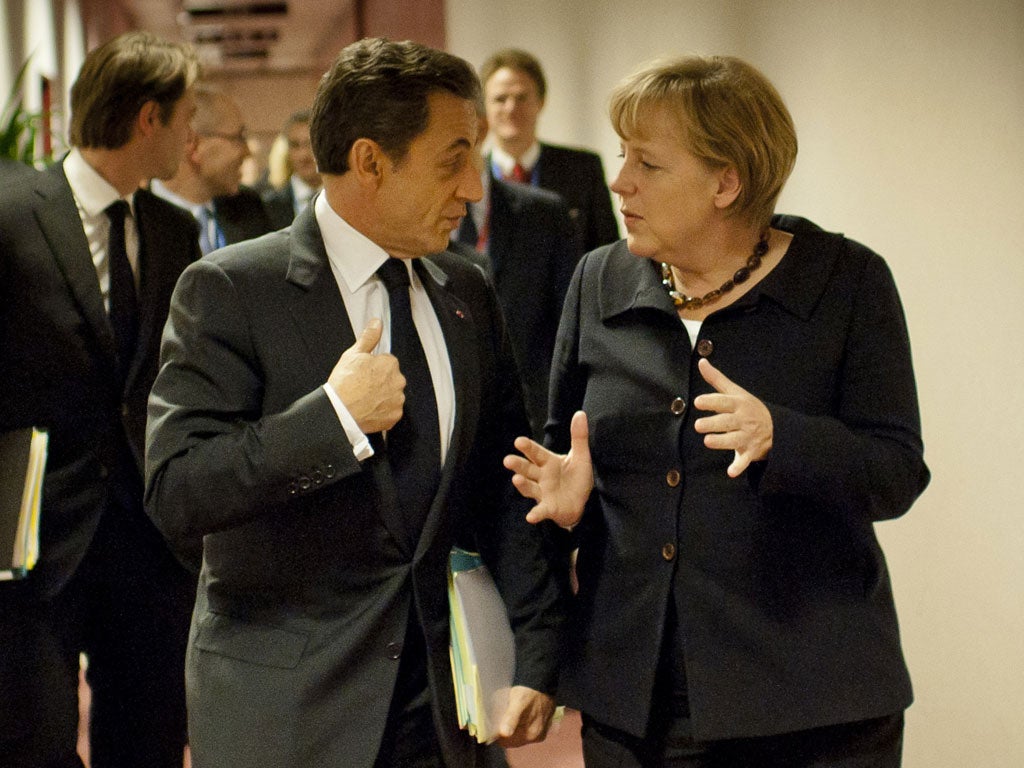Steve Richards: Britain is charging towards indiscriminate Euroscepticism at an alarming speed

Britain is farther away from the European Union than at any point since it joined.
Freeze-frame the many stormy dramas in the past and there was always a sense the UK would struggle through as a central player in the EU, with all three main parties committed to membership and their leaders taking more expedient stances than some of their oratory might have suggested.
On the Maastricht Treaty, the Iraq war and the Lisbon Treaty, insecure Britain differed from most of Europe, but opt-outs and Blairite pragmatism after Iraq meant there was always a way through. Now with Tory MPs asserting a new, wholly unrealistic, but resolutely determined Euroscepticism, a weakened David Cameron seeking to appease them with hints of a renegotiation that will not succeed and cannot take place this side of an election, and the eurozone planning fiscal integration, Britain is marching to a different, more dangerous and yet vaguely defined place. One despondent pro-European Labour MP predicts an in-or-out referendum within five years. We are moving nearer to the illusory freedoms of isolation.
In the increasingly frenzied, bad tempered politics of the European Union, Cameron seems to be seeking alliances with countries outside the eurozone, rather as Tony Blair took comfort from the fact Poland and Spain were allies over Iraq even if France and Germany were against. The non-euro alliance will be punier than Blair's over Iraq as most of the countries outside still want to join. Britain, Sweden and perhaps one or two others will be defiantly apart as the economic might of Germany reshapes the contours of the EU.
President Sarkozy had a point when he berated Cameron for attacking the euro disdainfully while seeking to be part of the discussions on its future. At every stage, pathetically and with little ammunition to back up their patronising and deluded postures, British leaders have lectured the rest of Europe. Tony Blair and Gordon Brown did so on a regular basis until they discovered that Germany was better equipped to deal with the financial crisis than the UK. Cameron and George Osborne offer their advice as if they were presiding over a successful economic policy.
Cameron was singing the same old tunes yesterday, blaming the EU for imposing too many directives on the City of London. This was hardly the moment to go on the attack after a week in which European attention was focused on avoiding a financial crisis of apocalyptic proportions. The reason he did so had nothing to do with events in the eurozone. Instead, Cameron chooses to highlight his own genuine scepticism at a point when Tory MPs are becoming dangerously obsessed once more. He has pledged to them a return of powers, so far unspecified, from Brussels to the UK. It is not clear where the support for such a transfer will come from within the EU, whether any minor changes would be enough to reassure his MPs, and what the Liberal Democrats would do if such a negotiation began before the election. Probably the only way out for Cameron is to pledge quite soon that the next Conservative manifesto will commit to renegotiate within a set time limit and to put the result to a referendum. No one knows whether that would be enough to calm down his backbenchers.
But with Labour also refusing to rule out a referendum on future treaties, the wariest member of the EU becomes warier. The scale of the renewed charge towards indiscriminate Euroscepticism cannot be overestimated. During Britain's intense agonising over Maastricht, John Major's Foreign Secretary was Douglas Hurd and his Chancellor was Ken Clarke, two pro-Europeans. When Blair alienated France and Germany over Iraq he resolved, typically, to move closer to them when the war was over. Domestic and international dynamics propelled Britain to remain at least close to Europe when it looked as if it was moving away.
This time the gaping gap is for real.
Join our commenting forum
Join thought-provoking conversations, follow other Independent readers and see their replies
Comments
Bookmark popover
Removed from bookmarks